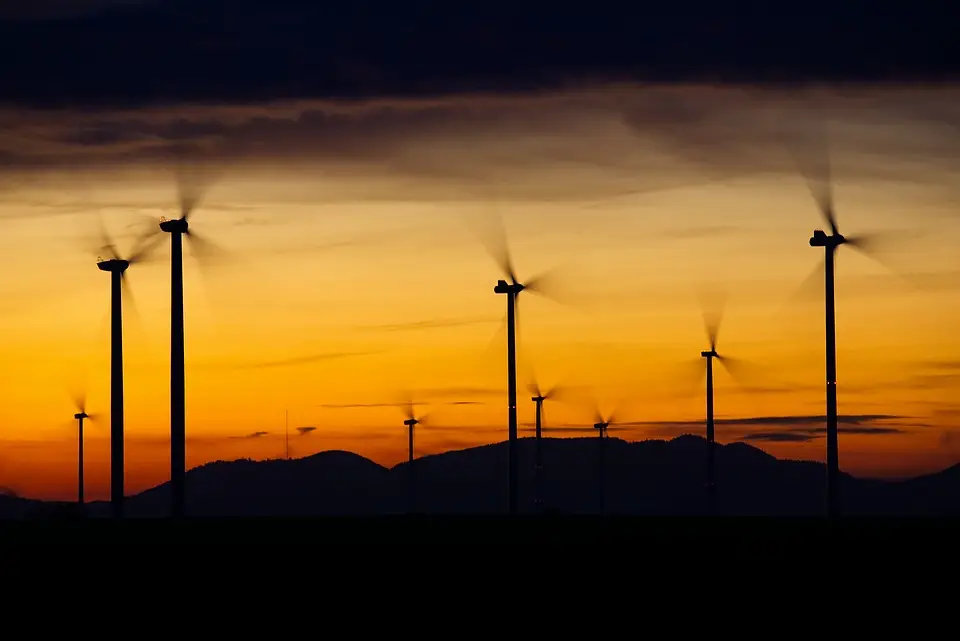
As Novac/Kresimir Zabec writes on the 22nd of May, 2020, Croatia can’t miss out on taking advantage of the opportunity to increase its share of energy production from renewable sources. It should use what it has, namely the solar, wind and geothermal sources, to increase energy independence and contribute to the European Union Green Deal, according to the conclusion of the fourth HANZA HUB online panel, which was dedicated to energy this time.
Julije Domac, Special Adviser for Energy and Climate to Zoran Milanovic, Ivan Androcec, Head of the Investment Strategies and New Technologies Department of the Strategy and Development Sector of Hrvatska Elektroprivreda, Marijan Krpan, President of the Management Board of the Hydrocarbons Agency, Tomislav Čorak, partner and executive director of BCG in Central and Southeast Europe, and Dalibor Pudić, president of the Croatian Professional Gas Association, all took part in the debate.
Just a few months ago, there were many discussions at the level of the European Union on how the new Green Plan of the European Commission will be implemented in reality, how much money will need to be allocated for its implementation and how it will affect the member states of the EU. Today, such matters regarding the European Union Green Deal are no longer so much in focus.
Due to the coronavirus pandemic and its consequences on the global economy, the focus in the energy sector is currently on the historically low price of oil, the decline in energy consumption and the recovery of nature due to the reduction of economic and other daily activities.
”This, of course, isn’t the way we want to reduce pollution. We want to reduce it with economic growth, which is the foundation of the European Green Deal. The good message to come out of this crisis is that we can change much faster than we thought we could. I’d like this recovery to be linked to green recovery, new technologies, technological progress, and green energy sources. Information from all over the world shows that investments in renewable energy sources are progressing faster than they are in fossil sources, and that’s a good indicator in the coronavirus age,” said the president’s advisor, Julije Domac.
Recalling that the latest crisis has led to a large drop in demand for oil in Southeast Asia, which has led to the fact that currently the most attractive business in the world is owning oil depots, Marijan Krpan estimates that this is only a temporary situation and that with the departure of the coronavirus, it will alter and rise again.
”Our position on the relationship between hydrocarbons and the Green Deal is defined by the relationship between production and demand. Europe produces 23 percent of its oil needs and 46 percent of its gas needs, but that does not guarantee us a future. And that’s why there is a transition and the inclusion of renewable energy sources and large investments in solar and wind power,” claims Krpan.
According to Tomislav Čorak, the shock being experienced by the oil industry will last for several years, which at the same time opens up some excellent opportunities for renewable energy sources, which includes large European oil players who didn’t stop investing in this segment. In contrast, American oil companies have drastically reduced all of their investments in green technologies due to the same oil shock.
”It’s possible that this is a turning point in the history of mankind and the world will turn more towards new green technologies,” Krpan pointed out.
Unlike the oil business, so far, electricity and gas have not suffered too much damage due to the coronavirus crisis.
”This crisis has so far only slightly affected the situation in the power industry and this shock hasn’t been so huge. The drop in demand stands at about ten percent. It’s been primarily in businesses, and in households, because people were staying at home much more, we’ve even recorded a small increase in consumption. Given that we’re a country that imports, the fall in energy prices has had a positive impact on electricity imports, which we’re forced to do because we’re facing arid hydrology. So, there was a drop in demand, but there was also a drop in prices so all of that together had a slight impact on our business. It’s difficult to say what will happen by the end of the year,” pointed out Ivan Androcec from HEP. Dalibor Pudic claimed that the coronavirus crisis didn’t affect gas consumption either and that the demand for gas was the same as it has been previous years during the same period.
Androcec also made sure to emphasise that HEP’s investment plan for renewable energy sources hasn’t changed or been reduced due to the coronavirus crisis.
”This year, twice as many investments have been planned in comparison to last year, and there have been no changes to that. We’re working according to a set plan and I believe that we’ll achieve what we’ve planned,” he pointed out.
The topic of HEP’s investments initiated a heated discussion between the panelists about the technologies in which it is necessary to invest. Dalibor Pudic believeed that world’s gas consumption will increase because the trend is to replace coal-fired power plants with gas-fired ones.
”In the last decade, we’ve had an increase in electricity production with energy from coal by 1700 terawatt hours, and from wind and solar power by 1050 terawatt hours. That coal was replaced by gas. In Europe, the largest reduction in CO2 emissions took place in the United Kingdom, which replaced oil with gas. Croatia must continue to explore any possible gas fields. The future of gas is not in question in the next 50 years in Europe and the rest of the world,” said Pudic, adding that if you develop a new technology for energy production, you have to sell it to foreign markets, and as it is expensive, whether or not you have customers is questionable.
Make sure to follow Total Eco Croatia for more on energy in Croatia and the European Union Green Deal.









